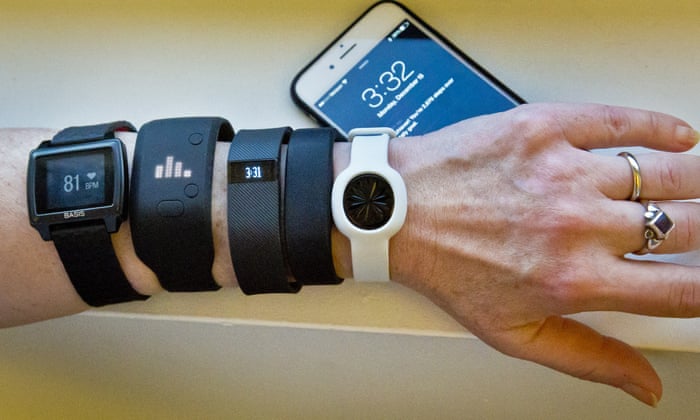Does nagging work? My mom Dba Press might say so, and certainly her reminders to wear a helmet while cycling possibly stored me a cracked skull some years returned. But what if the pokes and prods to do better and be…
Does nagging work? My mom Dba Press might say so, and certainly her reminders to wear a helmet while cycling possibly stored me a cracked skull some years returned. But what if the pokes and prods to do better and be better are coming no longer from someone who actually cares for you properly-being, but from a gadget programmed in Silicon Valley?

That’s the promise – and danger – of the internet of things, from wearable gadgets that include fitness bands to clever domestic gadgetry, including related scales and fridges. Right here’s the concept: that fitness band will matter your steps and inspire you to stroll extra. Or, in the future, your scales will tell your fridge you’re above your purpose weight and suggest a salad for dinner rather than pizza – even though the latter is precisely the temper-boosting treat you need after a worrying day.
It’s the “nudge” impact, a behavioral psychology concept that has some grounding in truth but also has its critics. (The government’s personal Nudge Unit has claimed successes with a wide range of areas from tax collection to organ donations, even though a house of Lords committee has raised doubts.)
One critic is professor Evan Selinger, of the branch of philosophy at Rochester Institute of the era, who mentioned that “even when it comes to instances where health equipment can do some good, serious questions need to be requested approximately literacy” in terms of IoT nudges. “Mainly, how informed are purchasers approximately how [these] products paintings and the which means of the outputs they yield?”
Even as my own anecdotal statistics suggest an app’s going to have to do greater than send me a day by day notification to counter my laziness, there’s proof that shows statistics-driven devices paintings for a few people. A 2013 Indiana college examination found pedometers did encourage workplace workers to go for a stroll, supporting them shed an average of 2.five pounds. But whilst fitness bands may also get you from your chair, they’ll know not to be correct: a take a look at utilizing Iowa state college found they have been among 10% and 15% wrong on calorie counts and daily pastime measures.
Accuracy aside, why are we striving to hit those dreams, anyway? Take the 10,000 step goal: it’s an arbitrary discern created via an eastern company to sell its pedometer. There’s no real motive that particular range ought to be your goal, instead of getting 150 minutes of exercise a week, as cautioned by way of the NHS.
RELATED ARTICLES :
- Straphanger: Saving Our Cities and Ourselves from the Automobile by Taras Grescoe – review
- The handiest Amazon machine that puts Alexa inside
- Best health trackers and device gifts for Christmas 2017
- Tech Troubles: Unintended Consequences of Gadgets
- Gadgets items for this holiday season
We’ve lengthy been marketed vibration plates and ab rollers, and other fitness foolishness to help us slim down with much less effort, and most are probably amassing dirt, like the step gadget I use as a footstool.
Ultimately, fitness bands and other linked devices may additionally well not prove any distinctive. “On the hype side of the equation, the client marketplace has long been flooded with fitness products that oldsters expect way too much from new gear, exercising movies, the trendy complement craze, etc.,” stated Selinger. “Digital products are easy sources to undertaking similar hopes and goals – possibly even less difficult, given the powerful maintain of factors associated with ‘innovation.’”
Although they do work, for those with the greater area than me – is personal surveillance the satisfactory way to reach our goals, be they set by way of us, the NHS, or a jap tech firm?
For example, many fitness bands will file how well you slept – now not most effective how long, but how deeply, based totally on how plenty you moved at night time – a measurement that isn’t necessarily a symptom of sleep pleasant. A higher decision which you’ve slept poorly is your very own frame. Feel tired? You didn’t sleep nicely.
Selinger cautioned we’re clearly searching out affirmation of our personal reports instead of trusting our personal bodily awareness. “In some instances, it’d appear that a fetish for numbers is main humans to have inadequate [faith in] their own capabilities to perceive and choose,” he stated.
Of course, fitness isn’t the best self-optimization that era is inclined to help us with. A Netatmo Welcome camera currently lives on a shelf in my flat. Its facial recognition lets me realize who’s come domestic, without having to speak to them. Are such computerized notifications any better than sending a message for your accomplice to say, “honey, I’m home”?
“The important thing, right here, is that under the veneer of convenience lies a desire to get rid of attempts from social interaction,” stated Selinger. “That’s a complicated intention precisely due to the fact, as I’ve argued, the effort isn’t an interpersonal worm.”
We additionally need to address privacy. Records are constantly Pandora’s field: once it’s accessible, it’s out.
“While any precise app or machine may be well worth the use of, it’s worth considering the kind of society we’re building if residents are endorsed to put themselves beneath constant surveillance and reply to an ever-expanding array of tech-produced cues for what to do to fulfill desires and keep away from doing putatively self-adverse matters,” Selinger stated.
“Once that may of worms is opened, issues of governance come to be salient that cross beyond self-management and comment on fears that sports which start as decide-in alternatives end up imposed upon us by employers and coverage agencies.”
We need to carefully recollect nudge tech, and we can until we as consumers recognize how such devices work and why they’ve set the goals for us that they’ve. The downsides ought to nicely outweigh the blessings – although they do help you weigh less.
Popular
-

Apple’s software updates are like changing the water in a fish tank. I’d rather let the fish die
The past few weeks haven’t been tremendous for Apple. First,…
2159 0 -

-

-

The Best Vaporizer for Dab Lovers
Concentrates are a phenomenon that spread like wildfire across the…
1603 0 -

Two tips to avoid information overload on the internet
Statistics overload affects us more and more, as we register…
1929 0
Latest News
Usually, barbeque is commonly used for barbeque parties. Though it doesn’t mean that the party only has a barbeque to…





















